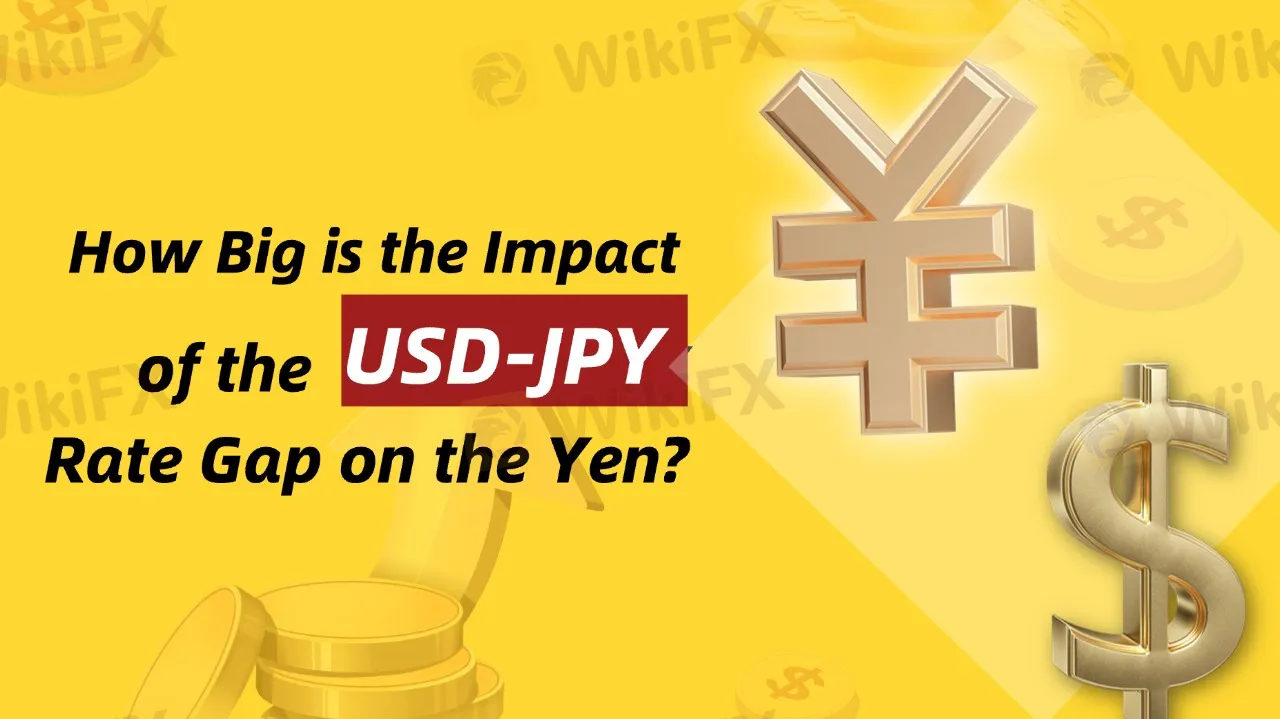简体中文
繁體中文
English
Pусский
日本語
ภาษาไทย
Tiếng Việt
Bahasa Indonesia
Español
हिन्दी
Filippiiniläinen
Français
Deutsch
Português
Türkçe
한국어
العربية
How Big is the Impact of the USD-JPY Rate Gap on the Yen?
Abstract:The U.S. Federal Reserve's repeated rate cuts and the narrowing of the U.S.-Japan interest rate differential are now in sight. So, why is the U.S.-Japan interest rate differential so important for the yen’s safe-haven appeal, especially when global economic uncertainty rises?

Simply put, when the Federal Reserve raises interest rates or the Bank of Japan maintains low (or even negative) rates, the U.S.-Japan interest rate differential widens. In such cases, investors are more likely to shift funds toward the U.S. market, where returns are higher, particularly in the bond market. This leads to capital outflows from Japan, reducing demand for the yen and driving it lower. In this scenario, the yen's safe-haven function weakens because investors tend to seek higher-return assets.
Conversely, when the U.S.-Japan interest rate differential narrows, investors may reduce demand for U.S. assets and shift back to Japanese assets or the yen.
In 2022 and 2023, the Fed's significant rate hikes caused a sharp depreciation of the yen as the U.S.-Japan interest rate gap continued to widen. This weakened the yen's safe-haven appeal, and investors preferred the U.S. dollar as a safer asset.
Looking at 2024, the Fed cut rates in the second half of the year, which should have narrowed the interest rate differential. However, due to the slow pace of rate cuts, it couldn‘t catch up with the speed of the yen’s depreciation, so the effect was limited.
In conclusion, the U.S.-Japan interest rate differential is closely linked to the yen's safe-haven properties. A widening or narrowing of the differential directly affects capital flows and the yen‘s exchange rate. Typically, when the differential widens, the yen’s safe-haven appeal weakens, and the yen depreciates. When the differential narrows, the yen‘s attraction as a safe-haven currency may strengthen, causing the yen to appreciate. Therefore, investors should closely monitor changes in the Federal Reserve and Bank of Japan's monetary policies, as well as global economic and geopolitical risks, when assessing the yen’s safe-haven status.

Disclaimer:
The views in this article only represent the author's personal views, and do not constitute investment advice on this platform. This platform does not guarantee the accuracy, completeness and timeliness of the information in the article, and will not be liable for any loss caused by the use of or reliance on the information in the article.
Read more

Fortune Wave Solution: SEC Warns of Investment Scam
SEC warns against Fortune Wave Solution Hub OPC’s unlicensed investment schemes. Avoid Ponzi scams; verify licenses before investing in the Philippines.

D. Boral Capital agrees to a fine as a settlement with FINRA
On August 6, 2025, the Financial Industry Regulatory Authority (FINRA) announced that D. Boral Capital agreed to a censure and a $125,000 fine as part of a settlement for failing to maintain the minimum required net capital.

What Is the Forex Grid Trading Strategy and How Does it Matter?
The forex grid trading strategy stands out as a semi-automated system that harnesses market volatility, aiming to capture gains from natural price fluctuations without requiring precise directional forecasts.
Before You Trade with Quest: 6 Warning Signs to Know
The Forex market is a jungle full of complex trades, high risks, and unpredictable moves. Without the right knowledge, you’re an easy target. In this environment, information is your only weapon. Many scam brokers are out there, ready to take advantage of uninformed traders. In this article, you will learn about another unlicensed broker: Quest.
WikiFX Broker
Latest News
Forex Hedging Strategies - Calming You Amid Market Chaos
Key Events This Week: ISM, Trade Balance And More Earnings
What Is Forex Currency Trading? Explained Simply
A Beginner’s Guide to Trading Forex During News Releases
Ultima Markets enters the UK and gains the FCA license
LSEG Announces £1 Billion Share Buyback Program
SEC Lawsuit Targets Real Estate Fraud Scheme by Joseph Nantomah
XS.com Broker Partnership Expands Liquidity with Centroid Integration
ASIC Regulated Forex Brokers: Why Licensing Still Matters in 2025
FCA Publishes New Warning List! Check It Now to Stay Safe
Currency Calculator


